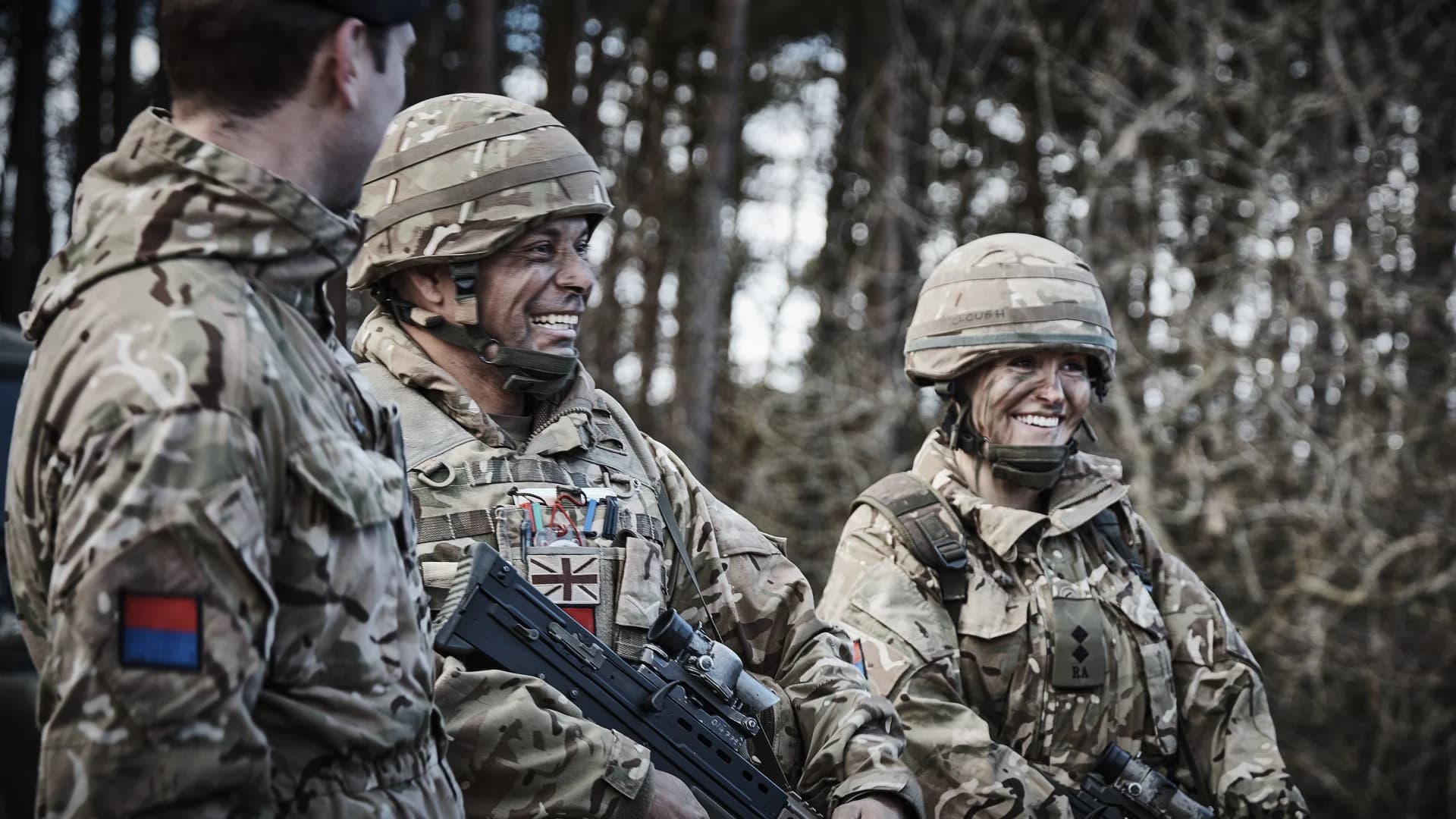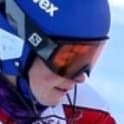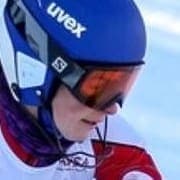
Hi, I'm currently an FY1. I was just wondering how much time you have for extra-curricular as GDMO? e.g. Sports

Additional information
You mentioned skiing. I was just wondering how easy it is as a GDMO to be able to compete in competitions etc. I see the army does a fair bit of Nordic skiing.
Chris O. asked a question to Tori C.
Category: Role Description
Date asked: Thursday, May 21, 2020
Last reviewed: Wednesday, June 3, 2020

Tori C.
Regimental Medical Officer
Hi Chris,
This might be a bit of a long winded answer, but hopefully it's helpful.
During GDMO you have several things you must achieve, outside of this, you have a lot of flexibility.
You must do 150 clinical sessions a year, this is half a day in a GP surgery, or 1 day/seeing 10 patients while deployed in a clinical role.
Depending on your medical regiment you may need to commit to a certain amount of regimental days teaching CMTs/generally being available to help with things. This can be as little as 0 days, or as much as a week a month.
You will also get a lot more leave than you are used to, don't question it, enjoy it, it's a big change from hospital medicine!
And you will need to do the various exercises and deployments that crop up during the year - expect to be away 3 months of the year, it varies significantly, but that is probably about average.
Do all the above, and the time left over is yours to play with (within reason).
Skiing is a complicated one - it's not easy to get into as a GDMO, but if you could tell me what you want to achieve and how much experience you have I can give you a better idea of the options available?
In regards to sport in general, the Army does pretty much everything. Either have a chat with someone at your regiment and get involved there, or if it is something a bit more niche then try a search on Facebook for the AMS or Army group. If you are good, and at Corps or Army level, you will find it a bit easier to fit work around sporting commitments.
If it's just a bit of casual sport that you're after, then try and make sure you have Wednesday afternoons off to join in with regimental sports.
Thursday, May 21, 2020
Chris O.
Hi Tori, thank you for your detailed reply. I can comfortably ski black runs in parallel or carving. I don't have any ski touring experience or much off-piste. I thought the competitions looked a good experience and read about the adventure training.
Thursday, May 21, 2020

Tori C.
Regimental Medical Officer
Ok, so there's two options really.
This might all change over the next few years though as the funding for skiing is constantly changing.
Some medical regiments (not all, so it's best to do your research when you put in your posting preference) have an Alpine or Nordic team (occasionally both). If you want to do pre season training and race competitively then you ideally need to be at one of those regiments. Actually getting on the team will depend on the amount of interest and whether or not you have any exercises/ deployments lined up, and most importantly, your boss needs to approve it! I volunteered as the regimental ski officer which is something worth considering, but be warned, it's a lot of work!
If you ski as part of a regimental team you usually get a few weeks pre season training, then you race at the divisional championship, the top racers from there go on to the Army championship and from there the Army team is selected for the Inter Service Championship.
Most skiers won't get past the Divs and they usually will go to the Army Medical Service championships and help with setting up and take part in the racing there as well.
AMS champs is much more relaxed and you can do both alpine and Nordic. Most medical regiments take a few teams out for this, it lasts about two weeks.
Both of the above will have slalom and giant slalom races, AMS will often run an extended GS race as well. Divs and Armies run Super G and Downhill - you race in all 4 disciplines.
If you just want a go at racing then I would recommend doing AMS champs first, and if you do well, it might be easier to get onto a team the following season. If you really want to race then start thinking about it early and cross your fingers you don't get deployed and that your boss is happy for you to go!
Are you applying as a direct entrant or do you have a bursary?
Thursday, May 21, 2020
Chris O.
Applying as a direct entry. Any tips?
Thursday, May 21, 2020

Tori C.
Regimental Medical Officer
Where are you in the application process?
Briefing and Main board;
Be really up to date on current affairs and if there are any controversial topics in the news try and be well versed on the arguments for and against.
Practice speed time distance calculations.
Be fit enough!
They will look at your ability to work as part of a team as well as lead one. Usually doctors do ok at main board as we have had a fair bit of comms skills and team working training already.
AMS interview;
If you can get to a familiarisation visit before your AMS interview that would be helpful.
This is the most important part of the application, just make sure you know your CV inside out, be yourself and be prepared to give opinions on current affairs. Or at least that's what my interview mostly consisted of! (I joined as a direct entrant)
Best of luck with the application, let me know if you have any more questions. GDMO time is brilliant!
Thursday, May 21, 2020
Chris O.
Thank you for that information. A few more questions if you don't mind.
1) What sort of courses are on offer to build your CV with the Army?
2) If you complete GP training with the Army and after your service want to go back into the NHS, are you qualified to the same extent as a standard GP?
3) I've recently read to be a Navy GDMO you have to have rotations in A 'n E and GP. Is this the case with the army?
Cheers,
Chris
Sunday, May 24, 2020

Tori C.
Regimental Medical Officer
Hi Chris,
1) On the PGMO course after you commission you usually do Battlefield advanced life support (BATLS), Major incident medical management (MIMMS) and a Diploma in the Medical Care of Catastrophes (DMCC), as well as other shorter courses on tropical medicine, CBRN medicine and various other useful things. The PGMO course is always being updated, so the content may change over the next few years. During GDMO years you have access to any of the courses run by the military - provided you can demonstrate why you need to do it (google 'DMS schedule of courses'), but occasionally you may be able to get funding for other courses - for instance I did my APLS.
2) Yes. You do the same GP training and exams as your NHS colleagues and have the same qualification. The only variation is that you can choose to do some rotations in a military setting - community psychiatry or rehabilitation, and your last 8 months of training are in a military GP practice. You will also do a few military GP courses during your training, this focuses on the extra bits you need to be a military GP - pre hospital emergency care and occupational medicine.
You will have a 4 year return of service after your 3 years of training, but after that you could return to the NHS.
3) No - or at least, not at the minute. Although I think it is preferable to have done A&E at some point, I did it during foundation years and so am not repeating it during training. Our rotations usually consist of 4 from; paediatrics, obstetrics & gynaecology, A&E, mixed medicine (ENT/Derm/Rheum), DMCH (military psychiatry) and rehabilitation (done at Stanford Hall). 4 months of 4 rotations, followed by a year of NHS general practice and 8 months military general practice. Some GP trainees may choose to do their training outside of a JHG setting (so rather than go to Frimley/Derriford/Portsmouth etc.. they may go to Cardiff, Bristol etc..) in which case they will be more likely to follow the same training as the local GP trainees, so rotations and rotation length may vary.
Hope that all makes sense, let me know if you have any other questions or want any clarification on the above.
Sunday, May 24, 2020
Chris O.
Hi Tori. Thanks for your information it’s been very helpful. I was just wondering whether, after completing your training, you are attached to an individual regiment? And if so, do you have a choice in this? Also, are there any opportunities to work with 16 Medical Regiment?
Wednesday, June 3, 2020

Tori C.
Regimental Medical Officer
Hi Chris,
Do you mean after the PGMO course? If so, then you are 'officially' attached to a medical regiment - this includes 16. You are also 'unofficially' attached to a medical centre, usually completely separate to your medical regiment, and this is where you spend most of your time.
For example, my assignment order (official posting) was for 4 armoured medical regiment who were based in Aldershot at the time. But I spent most of my time working at the military medical centre attached to the Allied Rapid Reaction Corps near Gloucester. Some of the GDMOs attached to 4AMR did go on exercise with them, but most of my exercises/deployments were with other regiments.
How much time you spend with your medical regiment is quite variable.
When you submit your postings preference you can list preferences for both your medical regiment and your medical centre.
If you meant after finishing training as a GP, then probably not immediately. Later in your career you could apply for the Regimental medical officer or Senior medical officer role there.
Wednesday, June 3, 2020
This discussion is closed, so no new comments can be added.